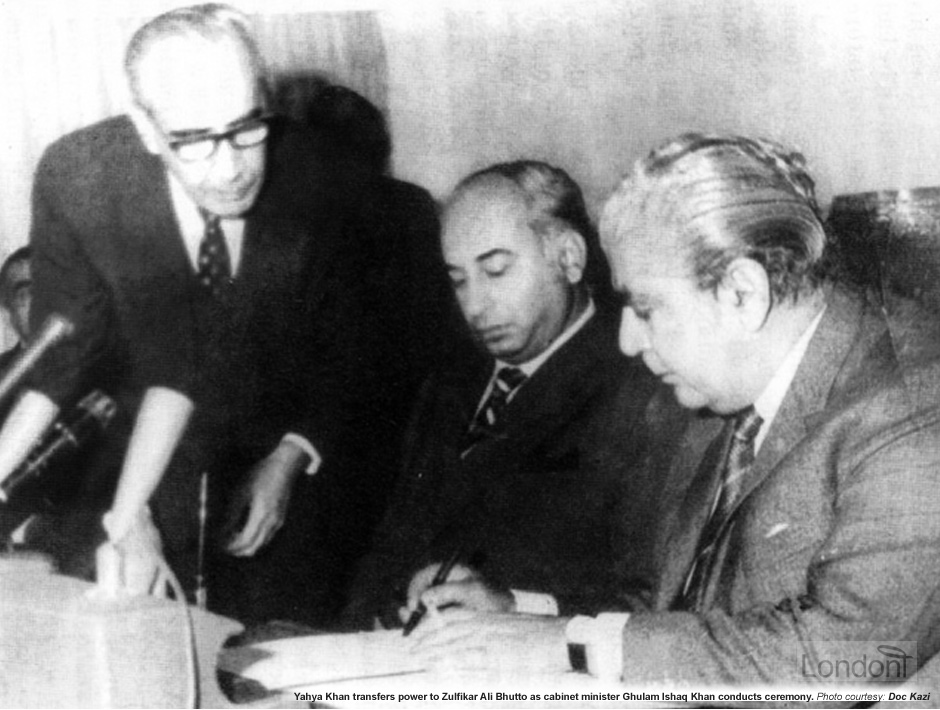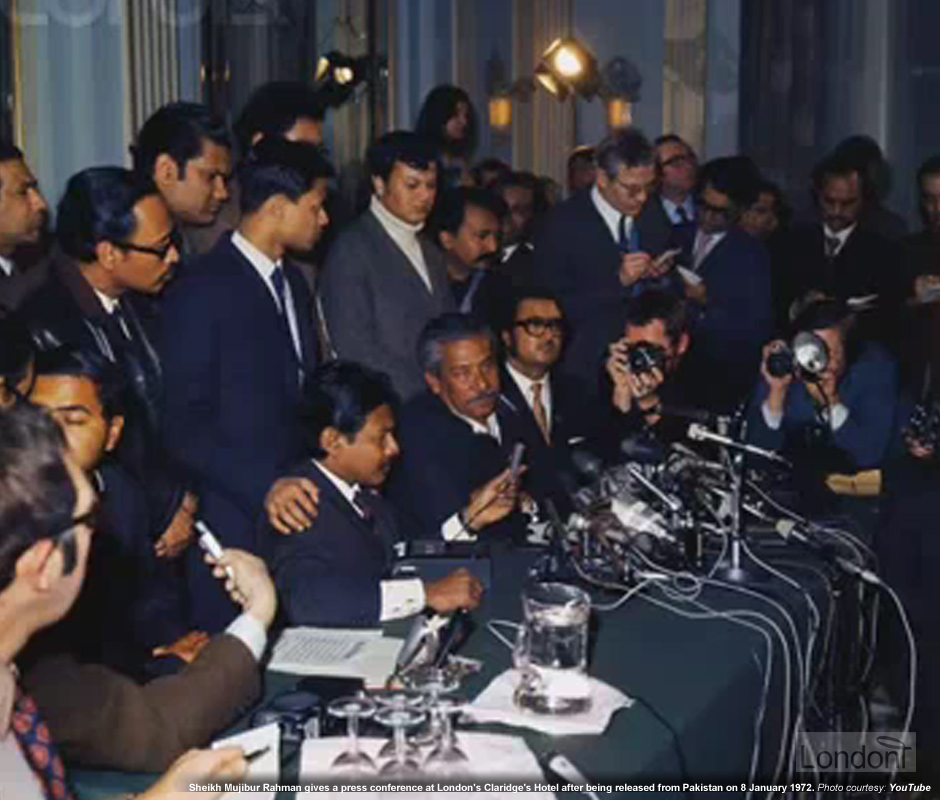
West Pakistan react by removing President Yahya Khan and General Niazi
Last updated: 5 October 2017 From the section 1971 Muktijuddho
The ceasefire came into effect on all fronts by the evening of 17 December 1971. While Bangladesh emerged out of the war as a new nation, the end of war set about a new equation in the region. India emerged as the leading powerhouse, in size, population and economic. Pakistan was now stripped down to 58 million - having lost 75 million to Bangladesh.
Defeat and separation of over half the nation was a shocking loss to top West Pakistani military and civilians alike. No one had expected that they would lose the formal war with the Mitro Bahini in under a fortnight and there was also anger at what was perceived as a meek surrender of the army in East Pakistan. The tensions were reflected in the army itself. Several brigade commanders in the 6th Armoured Division, allegedly in consultation with their colleagues elsewhere, demanded the military leadership's resignation. The following day, a gathering of army officers in the Rawalpindi garrison close to the capital resulted in an unprecedented challenge to the command of Yahya Khan and his closest aides.
Eastern Pakistan's rejection of the "Two-Nation Theory" and their reluctance to continue suffering the subjugation of West Pakistani's in the name of religion forced the new Pakistani hierarchy to review their cultural identity.
The (1971) war had shown that the country could not be built solely on a foundation of religious identity; ethnic and regional factors had ripped Pakistan apart during the civil war, driving both East Pakistani separatism and the bloody crackdown by West Pakistani forces that followed. Nonetheless, religious identity would now have to serve as the glue that enabled the country to reconstitute itself in the wake of that conflict.
Thus, as Stephen Cohen argues, "if the Pakistan movement and the first twenty-five years of the history of Pakistan can be characterised as a struggle to turn Indian Muslims into Pakistanis,” the years after 1972 saw “an extension of the process: a struggle to turn Pakistanis into good Muslims".
Zulfikar Ali Bhutto becomes President, and then hanged to death 8 years later
President Yahya Khan's military dictatorship also collapsed and gave way to Zulifikar Bhutto who took the opportunity to rise to power. Yahya Khan asked the Deputy Prime Minister-designate, Zulfikar Ali Bhutto, to return to Pakistan immediately and, having taken the decision on 19 December 1971 to resign, handed the presidency and the office of the Chief Martial Law Administrator to Bhutto the following day. Thus, on 20 December 1971, Bhutto became the 4th President of Pakistan - the first from a civilian background.
General Niazi's downfall
General Niazi, who surrendered along with over 90,000 troops, was viewed with suspicion and hatred upon his return to Pakistan. He was shunned and branded a traitor for his part in the worst military defeat of any army in decades. General Niazi was symbolically the last prisoner of war to cross back to Pakistan, after the Treaty of Simla in 1972. However, upon his return, Bhutto stripped Niazi's military rank, and the pension usually accorded to retired soldiers. Bhutto also stripped his military decorations and discharged him.
The war also exposed the shortcomings of Pakistan's declared strategic doctrine that the "defence of East Pakistan lay in West Pakistan".
M. Zafar, Analyst
Yahya Khan's death

Sheikh Mujib freed and returned to Bangladesh
New president Zulfikar Ali Bhutto responded to international pressure and released Sheikh Mujibur Rahman from the Pakistani jail on 8 January 1972.
Sheikh Mujib was then flown to London where he met with British Prime Minister Edward Heath and addressed the international media. He then flew to New Delhi, India, where he was received by Prime Minister Indira Gandhi. From New Delhi Sheikh Mujib flew to Dhaka Tejgaon Airport on 10 January 1972 - nine-and-half months after his infamous capture.
